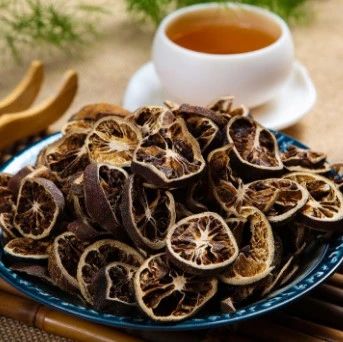This public account is the WeChat of the Special Therapy and New Technology Branch of the Chinese Association of Traditional Chinese Medicine. If you have not followed yet, please click the blue “Special Therapy and New Technology” above to follow.
What is Liver Qi Stagnation?
Some friends like to sigh, feeling a blockage in their chest, their emotions are not very high, and they suspect they have Liver Qi Stagnation. Is it possible? It is indeed possible to have Liver Qi Stagnation! Unlike the heat symptoms of Liver Fire, Liver Qi Stagnation is characterized by Qi stagnation, emotional changes, and is also known as Liver Qi Stagnation Syndrome. It is caused by the liver’s failure to regulate and disperse Qi, leading to stagnation of Qi. Typical symptoms include depression, frequent sighing, fullness in the chest and flanks or lower abdomen, accompanied by wandering pain. Female patients may experience breast lumps, breast tenderness, irregular menstruation, and dysmenorrhea. Modern medical diagnoses often identify symptoms of Liver Qi Stagnation in conditions such as chronic hepatitis, depression, menopausal syndrome, and breast hyperplasia.

Why Does Liver Qi Stagnation Occur?
It is often related to emotional factors and pathogenic invasion. Emotional factors can include anger, depression, unfulfilled desires, or sudden psychological stimuli that lead to poor Qi circulation, causing stagnation and blockage, which in turn impairs liver function and triggers symptoms. Pathogenic factors may include blood stasis and phlegm, which obstruct the liver meridian, leading to Qi stagnation; or damage to the spleen and stomach, causing poor Qi circulation in the middle jiao, which also affects liver Qi.
5 Herbs for Soothe Liver, Regulate Qi, and Relieve Pain Used for Liver Qi Stagnation
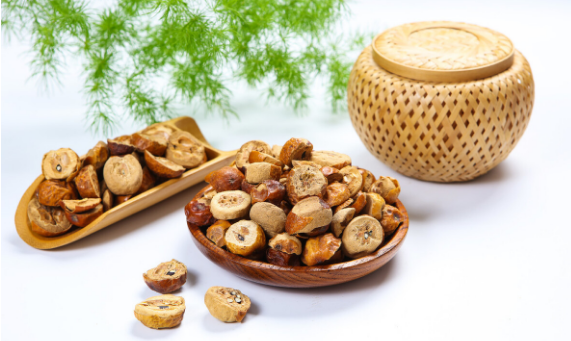
Chuan Lian Zi (Melia Toosendan) – Soothe the liver, clear heat, regulate Qi, relieve pain, expel parasites, treat skin diseases.
Chuan Lian Zi is bitter and cold in nature; it enters the liver, stomach, small intestine, and bladder meridians. This herb not only soothes the liver and clears heat but also regulates Qi and relieves pain, treating Liver Qi Stagnation or Disharmony between Liver and Stomach, especially effective for heat-induced chest pain and liver-stomach Qi stagnation, known as a “special medicine for hernia”; it also has the function of expelling parasites and relieving pain, suitable for abdominal pain caused by roundworms; Chuan Lian Zi is bitter and cold, which can treat skin diseases, particularly tinea capitis.
Those with Spleen and Stomach Deficiency Cold, anemia, liver dysfunction, or gastrointestinal ulcers should avoid Chuan Lian Zi. It should not be taken in large doses or for prolonged periods; caution is advised regarding the variety, as some places use bitter lianzi as a substitute, which can lead to poisoning.
Clinically, it can be combined to soothe the liver and regulate Qi:
Chuan Lian Zi combined with Yan Hu Suo (Corydalis Yanhusuo), as in Jin Ling Zi San, can soothe the liver, clear heat, regulate Qi, and relieve pain, suitable for heat-induced chest pain and liver-stomach Qi stagnation;
Chuan Lian Zi combined with Sheng Di (Rehmannia Glutinosa), Dang Gui (Angelica Sinensis), Gou Qi Zi (Goji Berries), can nourish Yin and blood, soften the liver, and relieve pain, suitable for long-standing chest and flank pain, liver Qi transforming into heat, and Yin-blood injury;
Chuan Lian Zi combined with Fennel, Wu Zhu Yu (Evodia Rutaecarpa), Mu Xiang (Aucklandia Lappa), as in Dao Qi Tang, can regulate Qi, soothe the liver, dispel cold, and relieve pain, suitable for hernia pain due to excess cold and dampness;
Chuan Lian Zi combined with Xiang Fu (Cyperus Rotundus), treats chest tightness and flank distension caused by Liver Qi Stagnation, breast tenderness, or irregular menstruation.
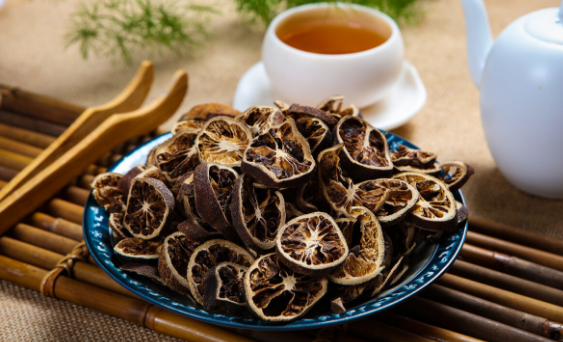
Qing Pi (Citrus Reticulata) – Soothe the liver, break Qi, eliminate accumulation, and transform stagnation.
Qing Pi is bitter and pungent, warm in nature; it enters the liver, gallbladder, and stomach meridians. This herb is good at soothing the liver and breaking Qi, treating liver Qi stagnation with flank pain, breast tenderness or lumps, breast abscess, and cold hernia abdominal pain; it also disperses masses and eliminates stagnation, treating abdominal masses, chronic malaria, and food accumulation abdominal pain. Vinegar-fried Qing Pi is particularly effective in soothing the liver and relieving pain. However, caution is advised for those with Qi deficiency.
Clinically, Qing Pi can be combined with:
Qing Pi combined with Chai Hu (Bupleurum), Yu Jin (Curcuma Aromatica), Xiang Fu, treats liver Qi stagnation with chest and flank distension;
Qing Pi combined with Chai Hu, Zhe Bei Mu (Fritillaria Thunbergii), Ju Zi Ye (Citrus Reticulata Leaf), treats breast tenderness or lumps;
Qing Pi combined with Gua Lou Pi (Trichosanthes Fruit Peel), Jin Yin Hua (Honeysuckle), Pu Gong Ying (Dandelion), treats breast abscess swelling and pain;
Qing Pi combined with Wu Yao (Lindera Aggregate), Xiao Hui Xiang (Foeniculum Vulgare), Mu Xiang, as in Tian Tai Wu Yao San, treats cold hernia pain;
Qing Pi combined with Gui Zhi (Cinnamon Twig), Chen Pi (Aged Tangerine Peel), as in San Pi Tang, treats cold pain in the abdomen;
Qing Pi combined with San Leng (Sparganium), E Zhu (Curcuma Zedoaria), Dan Shen (Salvia Miltiorrhiza), treats Qi stagnation and blood stasis masses, chronic malaria, etc.
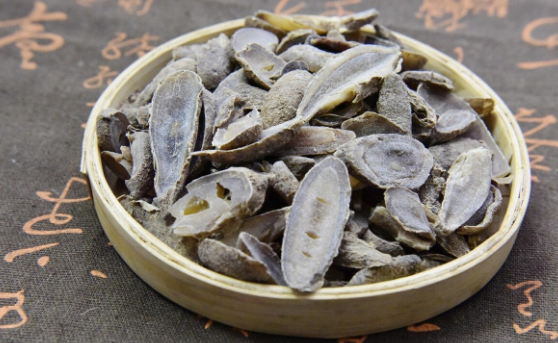
Yu Jin (Curcuma Aromatica) – Invigorate blood, relieve pain, regulate Qi, resolve depression, clear the heart, cool the blood, benefit the gallbladder, and reduce jaundice.
Yu Jin is pungent, bitter, and cold in nature; it enters the liver, gallbladder, and heart meridians. This herb invigorates blood and Qi, relieving pain, and is used for chest, abdomen, and flank distension or stabbing pain, Qi stagnation, and blood stasis pain; it can also clear the heart and cool the blood, used for vomiting blood, nosebleeds, and menstrual disorders due to Qi fire; it awakens the spirit, benefits the gallbladder, and reduces jaundice, used for liver and gallbladder damp-heat jaundice and gallstones. It is a key herb for invigorating blood, regulating Qi, and cooling the blood.
Yu Jin should be used with caution regarding dosage, form, and combinations to prevent toxicity; it should not be used with Clove due to pharmacological antagonism; it is contraindicated for those with Yin deficiency, blood loss, or without Qi stagnation and blood stasis, and should be used cautiously in pregnant women.
Clinically, Yu Jin can be combined with:
Yu Jin combined with Chai Hu, Bai Shao (White Peony), Xiang Fu, suitable for stabbing pain due to liver Qi stagnation;
Yu Jin combined with Gua Lou, Xiao Bai (Garlic), Dan Shen, suitable for chest pain due to heart blood stasis;
Yu Jin combined with Chai Hu, Zhi Zi (Gardenia), Dang Gui, Chuan Xiong (Chuanxiong), suitable for dysmenorrhea, breast distension due to liver Qi stagnation with heat, blood stasis;
Yu Jin combined with Bie Jia (Soft-shelled Turtle), E Zhu, Dan Shen, Qing Pi, suitable for treating masses.
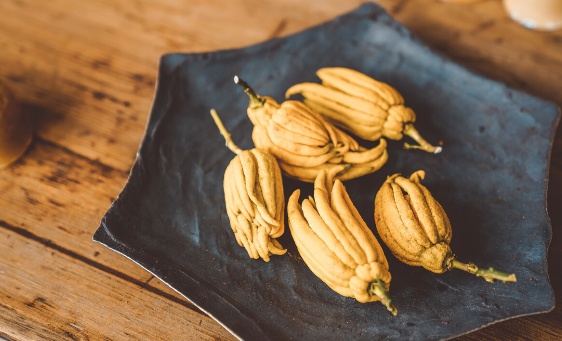
Fo Shou (Citri Reticulatae Fructus) – Soothe the liver, resolve depression, regulate Qi, harmonize the middle jiao, dry dampness, and transform phlegm.
Fo Shou is pungent, bitter, and sour, warm in nature; it enters the liver, spleen, stomach, and lung meridians. This herb is especially suitable for symptoms of disharmony between the liver and stomach or liver-spleen disharmony. It is used for indigestion, chronic gastritis, early-stage liver cirrhosis, pediatric infectious hepatitis, female dysmenorrhea, and other conditions related to liver Qi stagnation or liver-stomach disharmony, as well as abdominal distension, nausea, and cough with excessive phlegm. This herb is warm and dispersing, and caution is advised for those with Yin deficiency and heat, or Qi deficiency without stagnation.
Clinically, Fo Shou can be combined with:
Fo Shou combined with Qing Pi, Chuan Lian Zi, treats liver Qi stagnation and liver Qi invading the stomach;
Fo Shou combined with Mu Xiang, Zhi Ke (Bitter Orange), treats lung Qi stagnation with chest tightness and spleen-stomach Qi stagnation;
Fo Shou combined with Ju Luo (Citrus Reticulata Peel), Si Gua Luo (Luffa), Pi Pa Ye (Loquat Leaf), suitable for cough with excessive phlegm and chest-abdominal tightness;
Fo Shou combined with Chen Pi, enhances the function of regulating Qi, drying dampness, and transforming phlegm, used for spleen-stomach or liver-stomach Qi stagnation with excessive phlegm and cough.
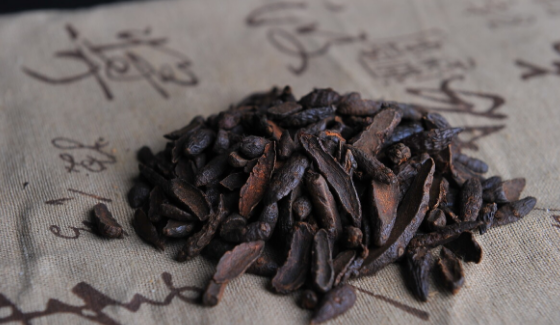
Xiang Fu (Cyperus Rotundus) – Soothe the liver, resolve depression, regulate menstruation, relieve pain, and regulate Qi.
This herb is pungent, slightly bitter, slightly sweet, and neutral in nature; it enters the liver, spleen, and San Jiao meridians. It is primarily used for liver Qi stagnation with flank pain, abdominal pain, as well as menstrual irregularities, dysmenorrhea, breast hyperplasia, chronic hepatitis, liver cirrhosis, gallstones, chronic gastritis, duodenal ulcers, and pelvic inflammatory disease, all related to liver Qi stagnation. As a general remedy for Qi disorders and a key herb in gynecology, Xiang Fu is also a key herb for regulating menstruation and relieving pain. Similar to other Qi-regulating herbs, caution is advised for those with Qi deficiency, Yin deficiency, or blood heat.
Clinically, Xiang Fu can be combined to treat liver Qi stagnation:
Xiang Fu + Gao Liang Jiang (Galanga), as in Liang Fu Wan, used for abdominal pain due to cold Qi stagnation and liver Qi invading the stomach;
Xiang Fu + Chai Hu, Chuan Xiong, Zhi Ke, as in Chai Hu Shu Gan San, used for flank and rib distension due to liver Qi stagnation;
Xiang Fu + Zi Su (Perilla), balancing Qi and blood, enhancing the ability to regulate Qi, relieve depression, relieve pain, and eliminate fullness, used for Qi and blood imbalance, chest and abdominal fullness, and pregnancy-related nausea and abdominal distension;
Xiang Fu + Dang Gui, one regulates Qi and the other harmonizes blood, complementing each other, enhancing the effects of soothing the liver, harmonizing blood, and regulating menstruation, used for stabbing pain in the chest and flanks, breast tenderness, irregular menstruation, and lower abdominal distension.
Xiang Fu vs. Chai Hu, a comparative understanding:
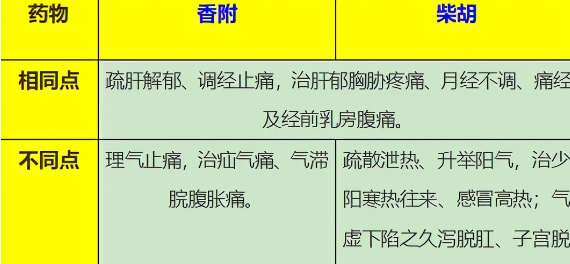
What Should Patients with Liver Qi Stagnation Pay Attention To?
Liver Qi Stagnation is closely related to emotional stimuli and unfulfilled emotions. Therefore, patients should maintain an optimistic attitude, a relaxed mood, and pay attention to diverting their attention, avoiding getting stuck on a particular issue; Liver Qi stagnation or blockage can involve a wide range of conditions, especially in gastrointestinal, liver, and gallbladder diseases, as well as gynecological diseases. Generally, it is not recommended for patients to self-medicate; they should seek treatment under the guidance of a professional physician to effectively improve and stabilize their condition. Through good daily life management, patients should avoid rich, spicy, cold foods, refrain from smoking and drinking, actively cooperate with medication and follow-up examinations, which is beneficial for recovery.
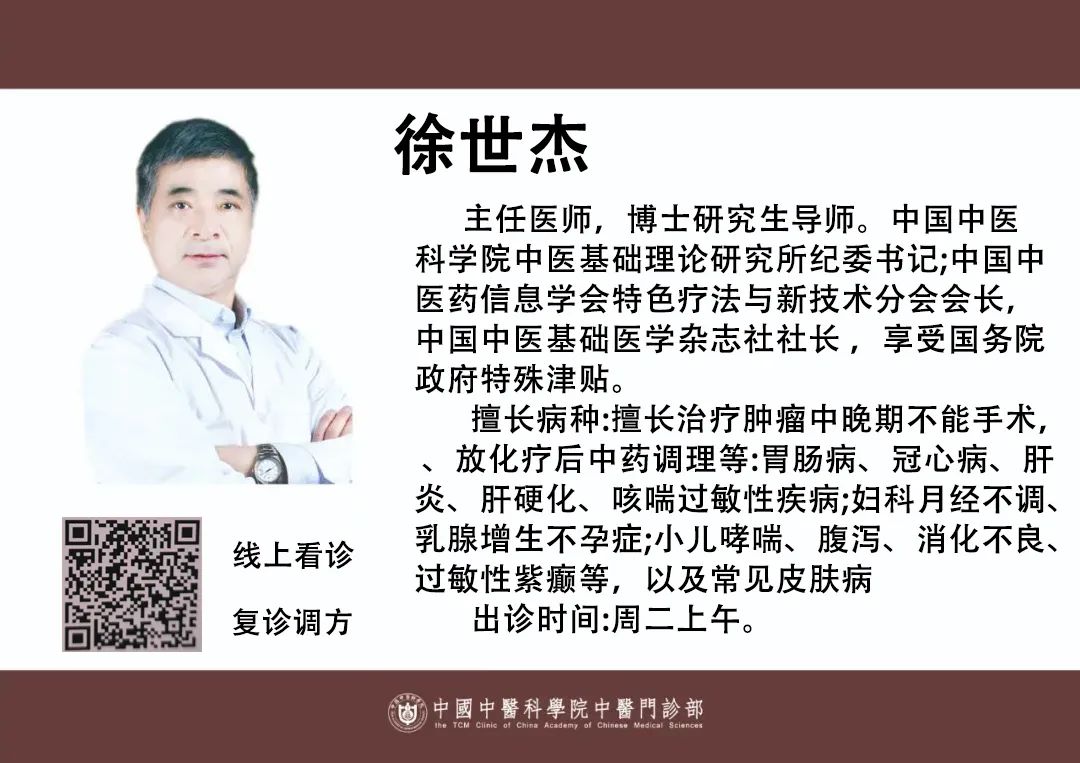
Follow the public account to learn more about live courses.
Disclaimer: Some articles on this site are reprinted, and the copyright belongs to the original author; reprinting is for the purpose of conveying information and sharing. If there are errors in source attribution or infringement of your legal rights, please contact the author with proof of ownership, and we will correct or delete it promptly. Thank you.
Reminder: The above content is for reference only and may not be suitable for all populations. It is recommended to adjust under the guidance of a physician.

